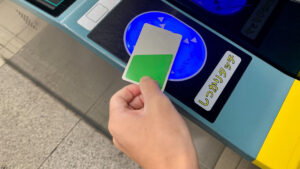Entering Japan requires various documents and procedures beyond just a passport and visa. Proper preparation of these is essential to ensure a smooth entry process. This article provides a comprehensive overview of the key points that foreign travelers and long-term residents should be aware of—from the basic documents needed for entry to customs declarations and post-entry procedures.
Contents
Basic Documents and Requirements for Entry into Japan
Passport Validity and Types
Minimum Passport Validity Period
When entering Japan, a passport generally needs to be valid for at least six months from the date of entry. However, for many countries, having a passport valid at the time of entry is sufficient. Always check the validity of your passport before traveling and renew it if necessary.
Difference Between Ordinary and Special Passports
An ordinary passport is the standard passport used for tourism or business travel. Special passports are issued to government officials and diplomats and are not available to the general public. When entering Japan, ordinary passports are commonly used, while special passport holders undergo specific entry procedures.
Procedures for Lost or Stolen Passports
If your passport is lost or stolen, promptly report it to the nearest police station and obtain a certificate of loss or theft. Then, begin the reissue process at your country’s embassy or consulate. Early action is important to avoid complications during your stay in Japan.
Visa Types and Key Points for Acquisition
Differences Between Tourist Visa and Work Visa
A tourist visa is intended for short-term sightseeing or business visits and does not generally permit employment in Japan. In contrast, a work visa is issued to those who intend to work in Japan and is categorized by job type and activities. If you plan to work, it is essential to obtain the appropriate work visa.
Visa Exemption Countries
Japan has visa exemption agreements with many countries, allowing nationals from those countries to enter without a visa for short-term tourism or business visits. However, stay duration and purposes are limited, so be sure to check the official website for eligible countries and conditions. Working under visa exemption is generally prohibited.
Basic Visa Application Procedures
Visa applications are made at Japanese embassies or consulates abroad. The process involves filling out application forms, preparing necessary documents, and sometimes interviews. Required documents typically include your passport, photographs, and proof of the purpose of stay. Processing times usually range from a few days to several weeks, so apply well in advance.
Additional Documents Related to Entry Permission
Certificate of Eligibility (COE)
The Certificate of Eligibility (COE) is an important document that foreigners wishing to stay in Japan for a medium to long term must obtain in advance. It is issued by the Japanese Immigration Bureau after reviewing whether the applicant meets the qualification requirements. Holding this certificate facilitates a smoother visa application process. The COE is mainly required for work visas, student visas, and similar categories, and the application is often handled by the receiving institution in Japan (such as a company or school) on behalf of the applicant.
How to Fill Out the Landing Permission Record
When entering Japan, it is necessary to complete the “Landing Permission Record” form at the airport. This form requires accurate information such as your full name, nationality, passport number, address in Japan, and purpose of stay. Errors on the form may delay the immigration process, so fill it out carefully using sample forms as a reference. The form can be completed in either English or Japanese.
How to Use the Online Declaration Form
Recently, Japan has introduced an online entry declaration system called “Visit Japan Web.” By registering required information online beforehand and obtaining a QR code, the immigration process at the airport becomes more efficient. The form can be easily completed via smartphone or computer, including health status and customs declarations, making it highly recommended for travelers.
Necessity of Medical Insurance and Required Documents
Recommended Conditions for Overseas Travel Insurance
For short-term visitors or tourists entering Japan, it is strongly recommended to have overseas travel insurance to cover unexpected medical expenses. The insurance should cover hospitalization, outpatient treatment, emergency transportation, and other medical costs, especially for expensive treatments. Proof of insurance may be requested upon entry, so carry a certificate issued by your insurance provider.
Overview of Japan’s National Health Insurance System
Long-term residents and those holding work or student visas are required to enroll in Japan’s National Health Insurance (NHI) system. This system covers a large portion of medical costs, with the insured typically paying 30% of the total expenses. Premiums vary based on income and municipality, which administers the program. Enrollment provides peace of mind by significantly reducing medical expenses when visiting hospitals.
How to Apply for a Health Insurance Card
To join the National Health Insurance, you must apply at the municipal office of your residence. Required documents include your passport, residence card, and proof of address. After registration, you will receive an insurance card that must be presented at medical facilities to receive coverage. Since the procedure is conducted in Japanese, it is advisable to seek support from your school or workplace if you have language difficulties.
Health Checks at Quarantine and Entry
Non-contact Temperature Measurement and Testing Procedure
At the time of entry, non-contact temperature measurement is conducted. If a fever is detected or deemed necessary based on the health questionnaire, additional medical examinations or PCR tests may be performed. These tests take place at designated facilities within the airport, and travelers may be instructed to wait until the results are available.
Procedures for Suspected Infectious Diseases
If an infectious disease is suspected, entry may be temporarily suspended, and further testing and isolation measures are carried out by public health authorities or medical institutions. Depending on the situation, quarantine periods or treatment after entry may be required, which can affect planned stays. It is crucial to follow all instructions carefully and manage your health responsibly.
Customs Declaration and Prohibited/Restricted Items
List of Items Requiring Declaration
Rules for Declaring Cash and High-Value Items
If you bring cash, traveler’s checks, or other monetary instruments totaling more than 1 million yen into Japan, declaration at customs is mandatory. Failure to declare may result in confiscation or penalties. High-value items such as jewelry and watches may also require declaration.
Restrictions on Bringing Food and Plants
Japan enforces strict regulations on the import of agricultural and marine products, requiring declaration at quarantine. Fresh foods, meat products, fruits, plants, and seeds are either prohibited or allowed only under strict conditions. Violations may lead to confiscation or penalties, so it is important to check the list of restricted items beforehand and declare accordingly.
Precautions Regarding Pharmaceuticals and Medical Devices
Personal-use quantities of pharmaceuticals and medical devices can be brought into Japan, but some prescription drugs and ingredients are prohibited. Narcotics and psychotropic substances are particularly regulated. When necessary, carrying a doctor’s note or prescription is required. It is essential to check regulations from the Ministry of Health, Labour and Welfare and customs in advance.
Prohibited Items and Penalty Regulations
Prohibition of Illegal Drugs and Firearms
At the time of entry into Japan, the possession and importation of illegal drugs such as narcotics and stimulants, as well as firearms and swords, are strictly prohibited. Possession of these items can result in severe penalties, arrest, and immediate deportation. Even unused items are illegal to possess, so it is essential never to bring them into the country.
Handling of Counterfeit and Fake Brand Products
Counterfeit goods and pirated products, including fake brand-name items, are prohibited from being brought into Japan. If discovered at customs, these items will be confiscated, and violators may face fines or criminal charges. It is important to purchase legitimate products and avoid possession of counterfeit goods.
Examples of Penalties and Warnings
There have been numerous cases of arrests related to the importation of illegal drugs and possession of counterfeit products. Penalties include fines, imprisonment, deportation orders, and future entry bans. Reviewing the prohibited items list before traveling and taking personal responsibility to avoid bringing banned items is crucial.
Duty-Free Procedures and Declarations Upon Return
Conditions for Duty-Free Items
Duty-free items purchased in Japan generally fall into two categories: consumables (such as food and cosmetics) and general goods (including clothing, electronics, and souvenirs). To qualify for duty exemption, the purchase amount must meet a certain threshold, the passport must be presented at the time of purchase, and the items must be taken out of the country upon departure. The items should be for personal use only; bulk purchases for commercial purposes are not allowed.
Duty-Free Procedure Flow
The duty-free process is conducted at the point of purchase. Present your passport, and the store staff will prepare the required duty-free documents. The purchased items will be packaged and managed to facilitate smooth inspection at customs. Upon departure, present the duty-free goods along with your passport and documents at the airport customs for verification. The process should be completed promptly.
Declaration of Items Upon Returning Home
When bringing duty-free items or other purchased goods back to your home country, be mindful of import restrictions and declaration requirements. High-value items or quantities exceeding allowed limits must be declared to customs. Failure to declare can result in penalties. Accurately complete declaration forms and follow customs instructions. It is also important to check the regulations of your home country in advance.
Documents and Procedures Required After Entry
Receipt and Management of Residence Card
Where and How to Receive It
Foreign nationals staying in Japan for a medium to long term are issued a residence card at major airports (Narita, Haneda, Kansai International Airport, etc.) after completing entry procedures. If entering through other airports or ports, the residence card must be collected later at the nearest Regional Immigration Services Bureau. The residence card serves as an important form of identification in Japan.
Obligation to Carry the Residence Card
Carrying the residence card at all times within Japan is mandatory. When going out, you must have it with you and present it upon request for identity verification. Failure to carry the card may result in penalties, so caution is required.
Procedures for Reissuing a Lost Card
If the residence card is lost, you must promptly report it to the nearest Immigration Services Bureau and apply for reissuance. The reissue process requires submission of an application form and identity verification documents, along with payment of a fee. To prevent loss, store the card securely.
Resident Registration and Health Insurance Enrollment Preparation
Documents Required for Resident Registration
For medium to long-term stays in Japan, resident registration must be completed at the municipal office within 14 days of entry. Required documents include your passport, residence card, and proof of residence such as a rental agreement. Registration officially recognizes you as a resident, enabling access to various administrative services.
Process of Enrolling in Health Insurance
After resident registration, enrollment in the National Health Insurance system is mandatory. This insurance reduces medical expenses and the application is done at the municipal office. Required documents include your resident record, residence card, and a personal seal. Insurance premiums vary based on income and location. Upon enrollment, an insurance card will be issued.
How to Use Municipal Support Services
Many municipalities offer support services for foreigners, including consultation desks and multilingual guidance. These services can help resolve concerns or questions related to resident registration and health insurance enrollment. Check the municipality’s website or local foreigner support centers for information, and make appointments or inquiries as needed.
Documents for Opening Bank Accounts and Signing Mobile Phone Contracts
Essential Documents for Opening a Bank Account
To open a bank account in Japan, valid identification such as a passport or residence card is required. Proof of address, such as a resident record or utility bill, may also be requested. Some banks require a personal seal (inkan), so it is advisable to check requirements in advance and prepare accordingly.
Documents Needed for Mobile Phone Contracts
Signing a mobile phone contract typically requires identification documents (passport or residence card), resident record, bank account information or credit card, and sometimes a personal seal. Required documents may vary depending on the contract plan or device purchase method, so it is important to verify details with the store or carrier’s official website beforehand.
Precautions and Recommended Procedure Order
Opening a bank account and signing a mobile phone contract are essential for daily life, so it is recommended to complete these procedures as early as possible. First, complete resident registration and obtain proof of address, then open a bank account, followed by the mobile phone contract. Since many procedures are conducted in Japanese, consulting friends or support centers can help if you encounter difficulties.
Avoiding Troubles and Using Support Services
Common Entry Issues and Countermeasures
Cases of Entry Denial Due to Document Issues
Entry to Japan may be denied if there are issues such as insufficient passport validity, visa errors, or missing required documents. Pay special attention if the visa type or conditions do not match, or if the Certificate of Eligibility (COE) is not properly prepared. Thoroughly prepare documents before entry and confirm any uncertainties with the embassy or immigration bureau.
Health-Related Troubles
If you are in poor health or suspected of having an infectious disease, you may be subjected to quarantine or additional testing at the airport. Failure to declare past travel history or symptoms can also cause problems. Accurately fill out health questionnaires and manage your health carefully. Having medical certificates prepared can provide reassurance if needed.
Common Customs Violations
Concealing prohibited items, making false declarations, or failing to declare items exceeding duty-free limits are customs violations. Penalties, confiscation, or arrest may result. It is important to complete declaration forms accurately and confirm in advance whether items are allowed for import when entering Japan.
Consultation Services and Support Organizations
Immigration Bureau Consultation Services
The Ministry of Justice’s Immigration Services Agency provides consultation desks for foreigners regarding entry and residence matters. They offer free advice on visa applications, status changes, and renewals, with direct consultations available at regional immigration offices nationwide. The official website also provides downloadable application forms and detailed procedural guides.
Local Government Support Services for Foreign Residents
Many local governments operate consultation desks and support services for foreign residents, including Japanese language assistance and help with administrative procedures. Multilingual staff are often available to help ensure foreigners can live comfortably in Japan. Services may include support for resident registration, health insurance enrollment, and child-rearing assistance.
Using Legal Advisors and Specialists
If you have concerns about visa applications or legal troubles, it is effective to seek support from specialists such as administrative scriveners or lawyers. These experts are well-versed in current laws, assist with document preparation, represent clients in procedures, and help with appeals. When choosing a specialist, check their credentials, track record, and reviews, and make use of free consultations to ensure you select a trusted professional.
Preparation Tips and Checklist
Pre-Checking Required Documents
Documents required for visa applications and entry procedures are varied. Make a checklist including passport, visa, Certificate of Eligibility (COE), medical certificates, and application forms, and carefully verify that nothing is missing. Prepare the latest versions and arrange necessary translations or notarizations in advance to facilitate smooth processing.
Utilizing Electronic Application Systems
Recently, Japan’s immigration procedures have introduced online application systems. Using electronic applications reduces paperwork and makes it easier to track the status of your application. Registration instructions and operation manuals are available on official websites, so learning how to use these systems beforehand helps expedite the process.
Contact List for Troubleshooting
In case of problems during entry or visa application, it is important to have quick access to key contact points. Keep notes of contacts for the Immigration Services Agency, local immigration offices, Japanese embassies or consulates abroad, and foreigner support centers. Also consider legal consultation services for professional assistance in emergencies.
Summary: Preparing Documents and Tips for Smooth Entry into Japan
Entering Japan requires preparation of not only basic documents such as passports and visas but also health and safety certificates, and awareness of customs declaration requirements for goods. After arrival, receiving your residence card, completing resident registration, and enrolling in health insurance are essential steps. By thoroughly checking required documents in advance, utilizing online application systems, and leveraging various support services, you can ensure a smooth start to your life in Japan without trouble. Stay informed of the latest laws and regulations to achieve a safe and secure entry experience.












